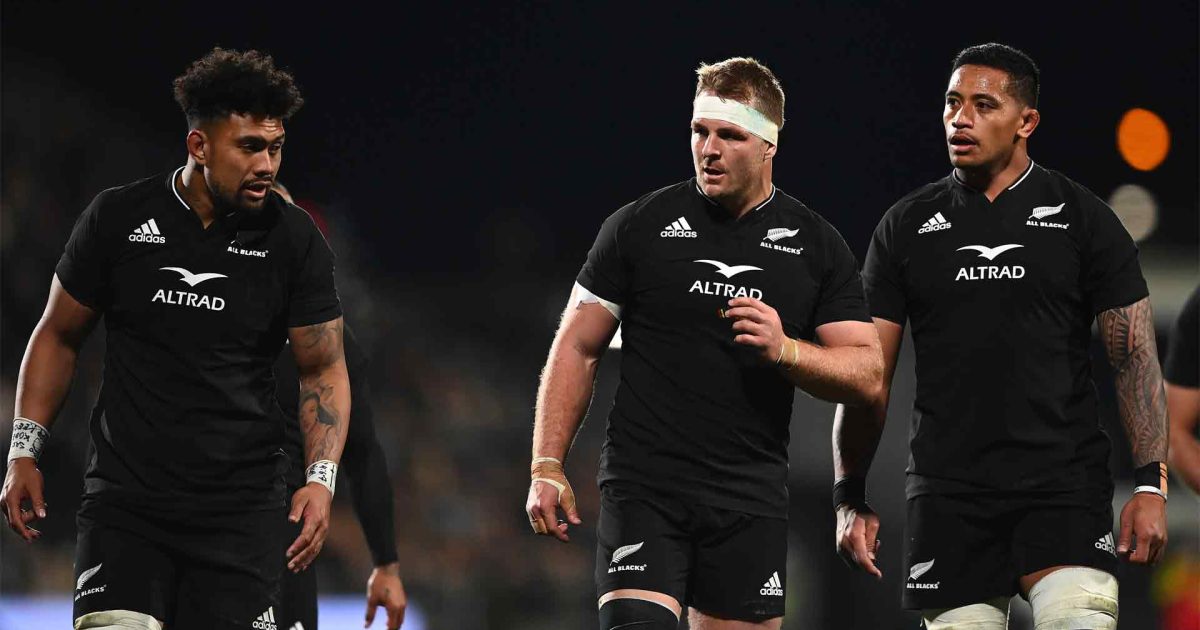What the All Blacks 'learned' from their unlikely Rugby Championship win

On August 8, his team soundly beaten in South Africa, the bell tolled for All Blacks coach Ian Foster.
After three straight defeats – the team’s worst run this century – the NZ Herald splashed a sullen-faced Foster on its front page with a headline “It’s time for change”.
While New Zealand Rugby didn’t change Foster – as many fans hoped they would – Foster did change the team.
With the benefit of some backroom and on-field tweaks, Foster and the All Blacks woke up Rugby Championship winners on Sunday for the third straight year, the title helping to wash away the troubles of the previous weeks.
The All Blacks belted Australia 40-14 on Saturday night at Eden Park to give themselves a big shot at the title, with South Africa needing to beat Argentina by 39 points in their early Sunday morning contest (AEST) to wrest it away.
The Springboks could only manage a 38-21 win, allowing Foster to flick off the TV in his hotel in the 75th minute, around 5:45am local time, a “very satisfied” man.
“It’s a championship that we stated we wanted to win and we’ve done it the hard way,” a bleary-eyed Foster told journalists a few hours later.
“It’s very special. It’s been a very different journey to other Rugby Championships that we’ve won.
“To do it from behind the eight ball at the start and have to climb through that, it’s not the way we wanted, but it’s really satisfying.”
From the team’s lows in July and August, with two home losses to Ireland, one away to South Africa and one at home to Argentina, the All Blacks shuffled their pack.
Out went two assistant coaches, replaced in the backroom by schemers Joe Schmidt and Jason Ryan.
The team found solutions to on-field problems, returning to a kicking game, managing the absence of Ardie Savea in Australia, and pushing Jordie Barrett into midfield at Eden Park to stunning returns.
“What have we learned? Under pressure we’ve stayed tight,” Foster said.
“Under pressure we’ve sought different solutions that have made all of us uncomfortable at times.
“And I’ll just say, there’s quite a bit left in this tank. There’s still a lot of finishing touches we’re not quite getting right. And what a good place to be.”
Foster has granted his players a fortnight off ahead of a squad naming on October 9 for a northern hemisphere tour beginning in Japan, before trips to Cardiff, Edinburgh and London.
There are also All Blacks XV games in October and November which will give fringe players a shot against Canada and the Scott Robertson-coached Barbarians.
Foster said the spring tour would be “vital” this year given a shortened southern season next year to accomodate the Rugby World Cup in France.
“Next year is pretty thin … five Tests before a World Cup starts next year so we’ve got to maximise our opportunities we get now,” he said.
The All Blacks will head north with their lowest-ever world ranking of fourth – behind Ireland, France and South Africa – but Foster said he was “not deeply concerned about that”.
“What we’re concerned about is that we show the improvement that we need and our trajectory is upwards because where want to be in 12 months time is not to be two, three, four or five. It’s to be one.”



































































